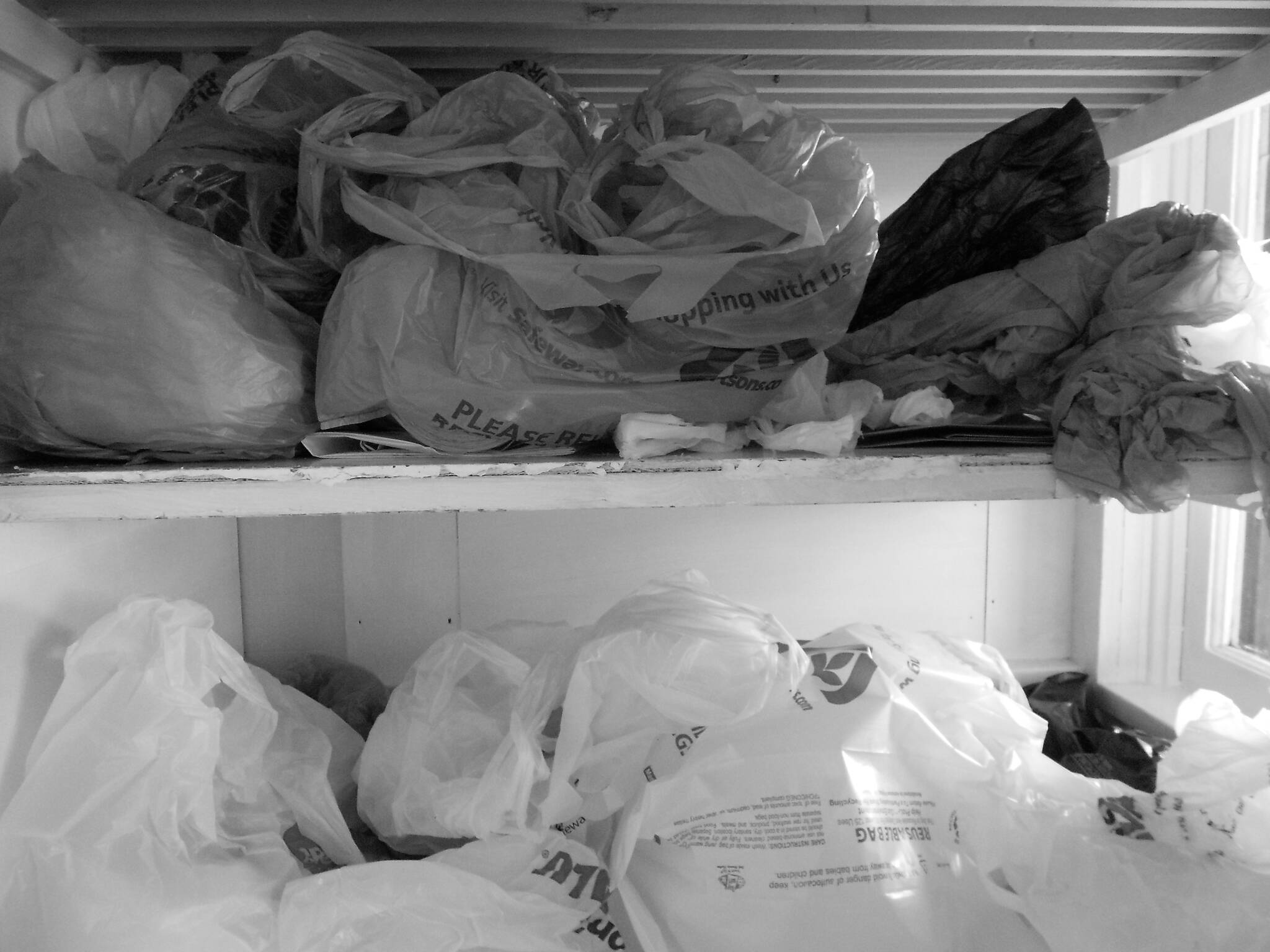A trip to the grocery store will be a little bit different and slightly more expensive for Grays Harbor County residents, largely because of a new law that took effect on Oct. 1 banning single-use plastic bags.
The Washington Legislature approved the statewide ban during its 2020 session, but implementation of the law was delayed because of supply chain issues related to the COVID-19 pandemic.
That gave folks who wanted plenty of time to load up on single-use plastic bags, which can be pretty convenient to have around the house. They serve as wonderful trash liners for small brown bags and are handy around cleanup time after a holiday meal.
But the big problem with the bags is they are an environmental menace. Of this there is no doubt and that’s why we believe the ban is a good idea, even though we’ll likely miss the bags when they finally work their way out of our lives.
That could take a while given the Washington State Department of Ecology estimates that Washingtonians use 2 billion single-use plastic bags annually, and there’s bound to be millions of the bags huddled up in cupboards or squirreled away in drawers and other places.
“Plastic bags are a major contaminant in Washington’s recycling facilities, waterways, roadways, and environment,” according to the Department of Ecology.
“Washington’s Plastic Plastic Bag Ban will reduce pollution by prohibiting single-use plastic carryout bags and charging a fee for acceptable bags in business establishments beginning (Oct. 1, 2021).”
The single-use plastic bags will be replaced by sturdier and thicker reusable plastic bags at checkout. Those bags, according to state law, must be made of at least 20% post-consumer recycled content made of plastic film at least 2.25 millimeters thick and will set a consumer back 8 cents a pop.
“Businesses collect and keep the entire 8 cents to recover some of the cost of providing the bags, and to incentivize consumers to bring their own reusable bags,” according to the Department of Ecology. “The charge must be shown as a taxable sale on the receipt provided to the customer.”
The new and improved bags can also be cleaned, although we suggest soap, water and a sponge as opposed to a spin in the family washing machine, something that would certainly gum up the works.
While the ban is aimed squarely at grocery stores in hopes of getting consumers to use their own bags (a really good idea until the customer forgets), it also applies to all retail and convenience stores as well.
On the bright side, certain carryout bags will live on. That includes paper bags, which as we all know work so well in the Pacific Northwest when it rains. Nothing like a mangled 6-pack of Pabst Blue Ribbon lying on the sidewalk after a brown bag gives way due to excess moisture after exiting a convenience store.
Of note, paper bags must be made of at least 40% post-consumer recycled content and labeled with their post-consumer recycled content.
There are other exceptions as well, including newspaper bags. We appreciate the nod because that helps keep The Daily World from getting all sloppy and soggy in inclement weather.
As for enforcement, scofflaws face up to a $250 fine for “repeated and continuous noncompliance.” With that, we hope consumers embrace the plastic bag ban and recycle whenever possible. For more information about the bag ban, please visit ecology.wa.gov.



